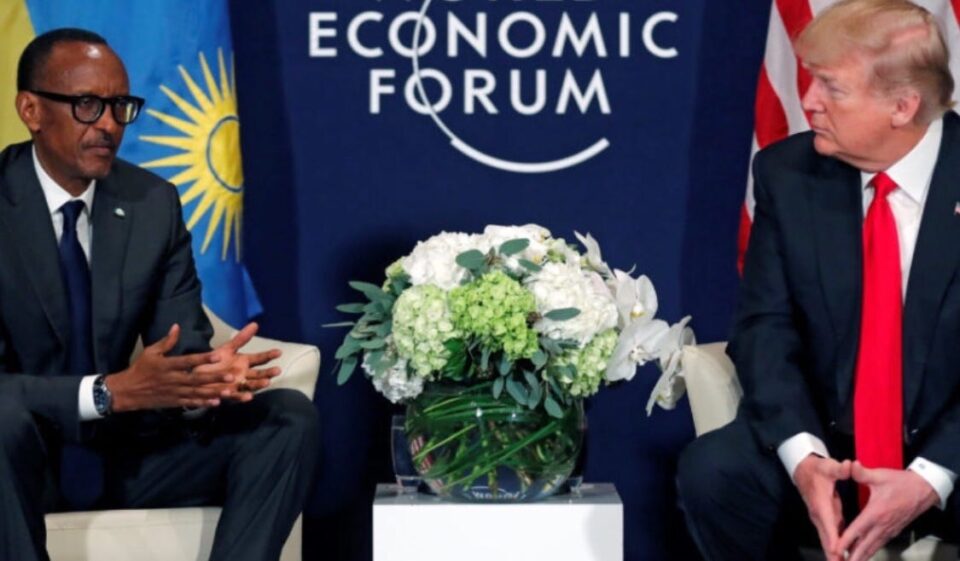By Judy Maina
NAIROBI, Kenya – The Trump administration is pursuing new agreements to send migrants to third countries, with Rwanda emerging as a potential destination, Secretary of State Marco Rubio said Wednesday during a Cabinet meeting led by President Donald Trump.
“I say this unapologetically — we are actively searching for other countries to take people from third countries,” Rubio declared.
“That’s not just El Salvador. We are working with other countries to say, ‘We want to send you some of the most despicable human beings to your countries.’”
Two officials familiar with the matter, who spoke on condition of anonymity due to the sensitivity of the negotiations, confirmed that discussions with Rwanda are underway.
The central African nation, which previously signed a controversial migrant relocation agreement with the United Kingdom under its former Conservative government, is being considered as part of a broader effort to externalize the U.S. deportation process.
Rwanda’s deal with the UK never materialized, as Prime Minister Keir Starmer’s Labour government scrapped the plan shortly after coming to power in July 2024. Still, U.S. officials appear hopeful that Rwanda’s willingness to engage on similar terms could revive the model — with Washington now at the helm.
The Trump administration’s existing arrangement with El Salvador, which includes the return of Salvadoran nationals and Venezuelan migrants, has already sparked controversy.
The backlash intensified after a U.S. immigration official admitted to the wrongful deportation of Kilmar Abrego Garcia, a Salvadoran man who held a court order blocking his removal. The Supreme Court has since intervened, ordering the government to take steps to return Garcia to the U.S.
El Salvador’s President Nayib Bukele has been a willing partner in the deal, touting his mass incarceration campaign against gangs as a model for regional security.
Secretary Rubio, who visited San Salvador this week, praised Bukele’s cooperation and claimed the Salvadoran leader has even offered to detain U.S. citizens — a proposal Rubio acknowledged is fraught with legal obstacles.
Civil liberties groups and legal experts have sharply criticized the administration’s approach, warning it undermines asylum protections and flouts international norms.
“This is not immigration policy — it’s political theater,” said Cristina Morales, a senior attorney with the Center for Constitutional Rights. “Offshoring migrants to countries with little oversight or due process mechanisms doesn’t solve the problem, it deepens the humanitarian crisis.”
Still, administration officials insist the agreements are essential to the president’s national security strategy. “We are taking back control of our borders,” said a senior White House official. “If that means sending people elsewhere, so be it.”
The talks with Rwanda remain ongoing, and it is unclear whether any formal agreement is imminent. But the broader message from the Trump administration is unmistakable: the era of third-country transfers is far from over — and it may just be expanding.



